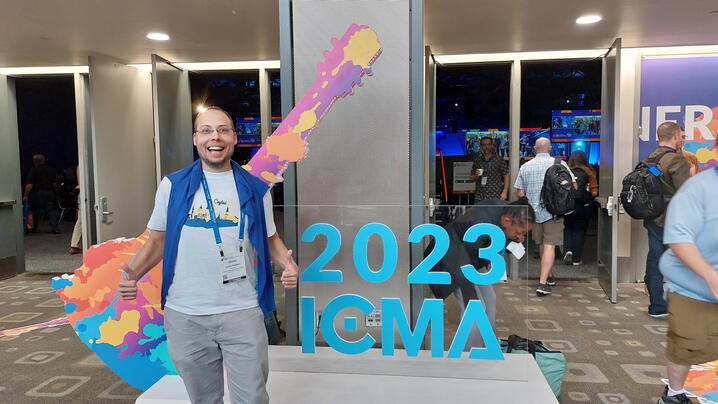
I was honored to receive ICMA’s John Garvey Scholarship in 2023. Thanks to this opportunity, I had the best professional study experience of my career so far that might be a life changer for me. Let me tell you about it!
The Beginning
It was close to midnight, sometime in February 2023, when I was going to sleep, but I felt the need to check my emails. A joyful surprise awaited me. An ICMA colleague shared the good news that I was selected to be a John Garvey Scholarship recipient. I felt even more honored as I’m the first Hungarian to be a recipient of this scholarship.
I wanted to make the most of this opportunity and I recommend it to other potential scholarship recipients from all over the world. My advice for the non-U.S. citizen colleagues is to make the ICMA Annual Conference the central element of your foreign study trip if you choose the United States to be your trip destination (and organize/find extended experience gathering opportunities for yourself before and after the conference). Check with ICMA or other colleagues to see if a study tour is already being organized adjacent to the conference. This is an opportunity to add to your experience and decrease the work needed in making connections. For example, ICMA Europe hosted a study tour in Texas after the ICMA Annual Conference in 2023.
It is also helpful if you have a central topic of interest. It will help you focus when you organize and choose programs to attend. In my case, the topic was the urban development issues and coordination mechanisms of metropolitan areas. I live in a metropolitan area in Hungary and my time is divided between two homes: one in Budapest and one in a small town, so I see the challenges from different points of view.
New York: Climate Change Firsthand
I scheduled my trip accordingly, arriving in New York City first. I had two to three days to get through the jetlag. Do yourself a favor and don’t arrive from overseas just the day before the ICMA Annual Conference. The conference is full of interesting programs from morning to night, and you’ll need your strength and concentration to utilize the full potential of this professional gathering.
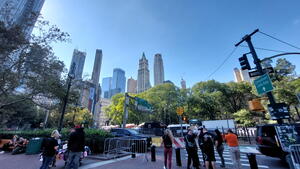
During the next few days, I explored urban spaces in New York City and had a meeting with a New York University professor who offered interesting facts about the development trends of the metro area. The ICMA Annual Conference was held in Austin, Texas, in 2023, so I intended to have a peaceful flight to Austin, Texas, from Newark, New Jersey. It may be destiny that record-breaking rain fell on New York City on the day of my trip. The traffic in New York City stopped and the situation became worse by the hour. This was the day when half of the NYC subway system was flooded or in inoperable condition; one terminal of La Guardia airport was flooded and had to be closed. Hundreds of flights were delayed or canceled all over NYC airports. Meanwhile, some of the streets were underwater with whirlpools. I managed to find a working subway line, but during the slow and unpredictable trip, government emergency messages started to arrive on all cell phones saying that “this is a life-threatening situation, please stay home”. Well, it was too late for that. Luckily, I managed to get to Newark and, with more than three hours delay, I arrived in Austin on a very hot summer night, around midnight. On the same day, I experienced a rain emergency in NYC and above average hot temperatures in Austin. Extreme weather events are going to become more frequent, and our cities are not prepared for that. It was an unavoidable reminder that we urban planners and city managers have a tremendous amount of work ahead of us in the next decades.
Austin: Hot Temperatures, Hot Music, Hot Conference
The ICMA Annual Conference in Austin was an inspiring and huge event for me. I recommend all of my fellow professionals within and outside of ICMA to participate in as many events as possible. I found the mobile workshops especially useful. I chose a visit to the brand new Seaholm District with local government staff and real estate developers. This district, with the new Austin Public Library, is a shining example of brownfield rehabilitation. I also suggest attending the evening events. Great music, friendly chats, and delicious food are all worth it!
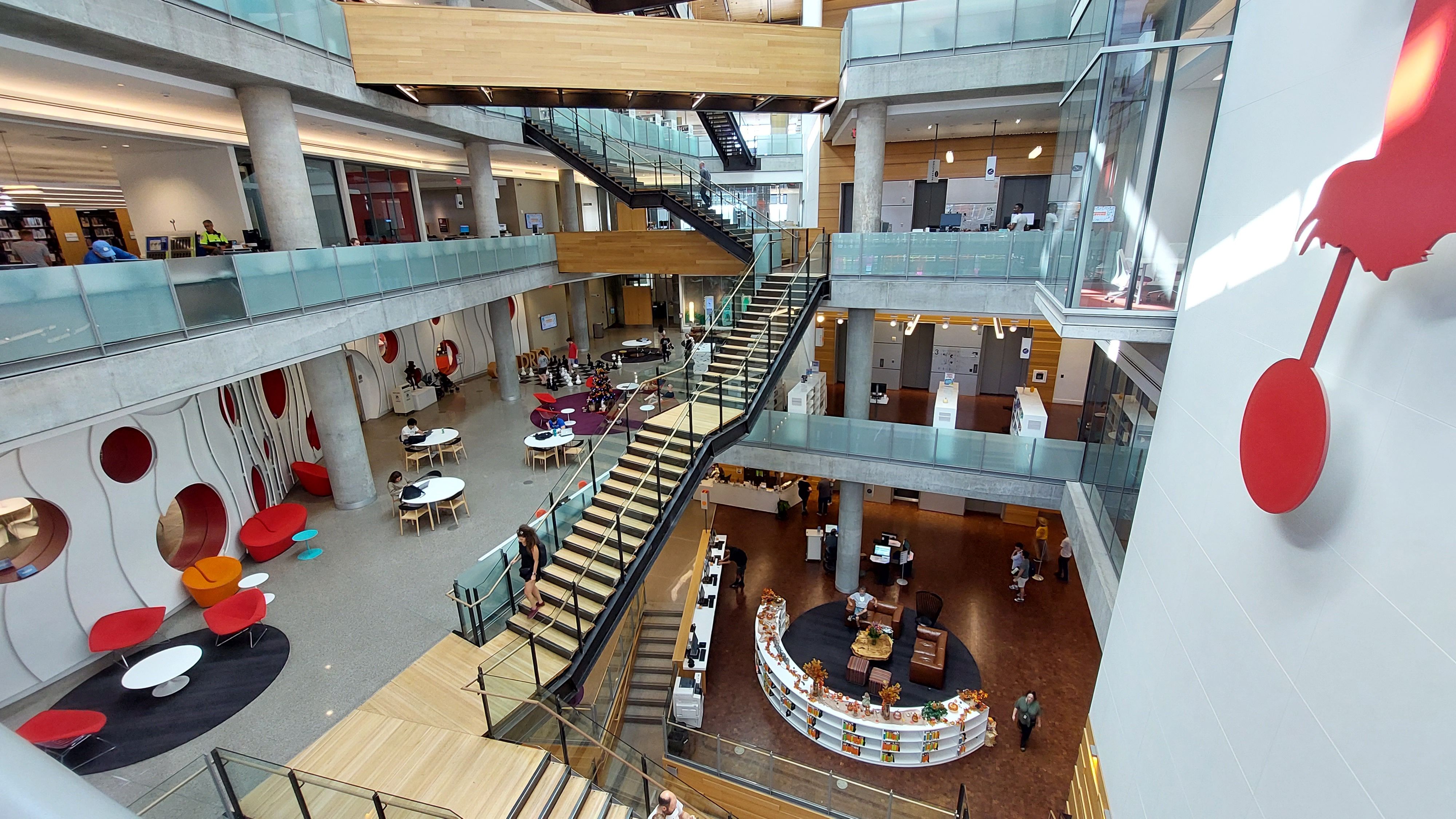
It's impossible to write about every aspect of the conference but the presentations, the micro-certificate courses, the exhibition, and three TED talk level general sessions were all excellent places to learn and grow. What’s more, I felt openness and friendship all over the conference, which is a great help when traveling alone so far from your home. Pro tip: download the ICMA conference app, it makes scheduling and connecting a lot easier.
New Jersey: Home of Rutgers and Manhattan, a Dream Come True!
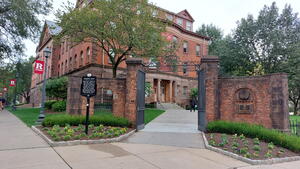
After the conference, I had the honor of visiting Rutgers University in New Jersey where one of the professors from Germany taught me a lot of things about the issues of the New York metro area during a field trip. Also, it was a once in a lifetime experience to walk the campus fields of one of the oldest U.S. universities.
I was lucky enough to close my trip in a place of my dreams as an urban policy expert. The urban planners of Manhattan were kind enough to have a meeting with me and talk about the city issues from their perspective. I can tell you it was euphoric for me to be in the heart of one of the greatest cities on earth, in the David N. Dinkins Municipal building, which itself is an iconic manifestation of municipal principles.
Lessons About City Management
Not only was the experience great for my professional growth and networking, but I also learned some great lessons that better shape my understanding of how local governments function around the world.
As a European professional, I found the local government structure in the United States to be inspiring. The council-manager model requires a local government to hire an expert with the managerial, economic, and technical skills necessary to manage the administration of the government. This allows local governments to avoid the trap of some European municipality systems—especially those originating under the German legal system—where local governments are compelled to hire a lawyer or a public administration manager (called a notary in Hungary) for the operational management of city hall staff.
In Hungary, for example, government operates similar to the mayor-council system in the United States with a hired city administrator. Here, the council is the primary decision-making body of the local government. The council is comprised of elected representatives, and meetings usually take place once a month. The mayor is also an elected official and is the head of the local government administration. Nevertheless, a mayor has to secure a majority in the council in order to make decisions of significance. Therefore, it’s possible to serve as mayor even if the mayor’s faction is the minority in the council, but the mayor is obligated to execute the decisions of the majority.
The notary is the head of the city hall staff as a chief executive. According to Hungarian law, the notary is selected through a call for application process, and the appointment is for an indefinite period. The law indicates that the notary should be a public servant who graduated either in public administration/management, law, or public/political science. In practice, the notary in most cases is a lawyer. The mayor is the employer of the notary, but the notary acts as the employer of the city hall staff. Nevertheless, the mayor’s agreement is necessary for hiring, appointing, laying off of public servants and for approving the compensation packages and bonuses of the city hall staff. This means the mayor and notary must find a balance between each other’s responsibilities for the city hall to function smoothly.
The challenge in this system is that an entirely different set of skills is needed to win an election than to manage a public sector organization. The notary is usually a lawyer specialized in public administration law. While I know a lot of great lawyers, not all will excel as chief executives of an organization with complex economic, technical, and communication needs. This law-centered approach results in a very different quality of town/city management across the country.
This administration focus at city hall is one of the reasons why towns and cities that can afford it, establish local government-owned companies with specialized chief executives/directors to provide programs and services in different areas such as urban development, city management, cultural development, marketing, and events/activities. Cities also tend to outsource specialized activities because companies aren’t bound by the wage categories and rules for public servants (set by law). Therefore, companies are more flexible than government.
As a summary, we see a certain kind of duality in a lot of Hungarian towns and cities. City hall staff focus mostly on administration issues while the local government companies concentrate on city management and development. Of course, there are plenty of examples of mixed systems as well where a department within city hall staff has the task of road maintenance while new construction belongs to a specialized company. However, the hiring of a city manager responsible for the administration of government and accountable to the people’s elected representatives of council is not practiced. I am interested to see how we might strengthen professional management even under our current system of government based on the lessons learned through the council-manager form in the United States. Furthermore, I think it would be a worthy experiment to try the U.S. council-manager model in three to five volunteer Hungarian local governments. These pilot projects would show whether it is possible to deliver better results with chief executives that have more managerial skills than legal knowledge.
This exchange was an eye-opening experience on many levels, fostering a more holistic understanding of local government management around the world and even in my own country. I hope that all of you will have such fantastic experiences in the future. Do yourself a favor and be on the lookout for exchange opportunities through ICMA!
Global Knowledge Exchange Opportunities
Want to participate in a global knowledge exchange opportunity like this one? The ICMA Global Engagement Committee administers semi-annual global knowledge exchange awards and will announce the latest round of recipients in April 2024. The Tranter-Leong Fellowship is a $5,000 award, and the John Garvey Scholarship provides $3,500 in support. Learn more about these opportunities and be on the lookout for future application cycles at Tranter-Leong Fellowship and John Garvey Scholarship.
ICMA is celebrating 100 years since adding the "I" to its name, serving as the home for local government professionals worldwide and fostering an environment of global knowledge exchange. Learn more about the global future of ICMA, and contact us at global@icma.org for more information about our global efforts.
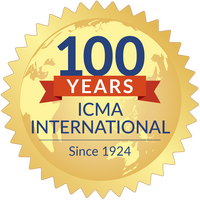
New, Reduced Membership Dues
A new, reduced dues rate is available for CAOs/ACAOs, along with additional discounts for those in smaller communities, has been implemented. Learn more and be sure to join or renew today!
